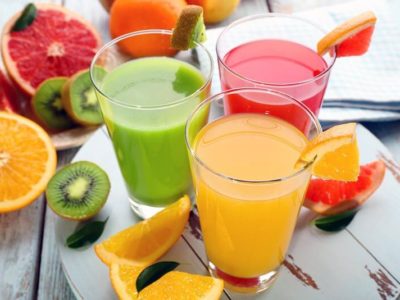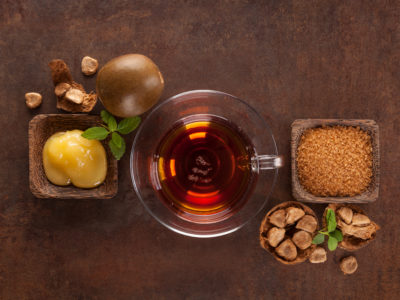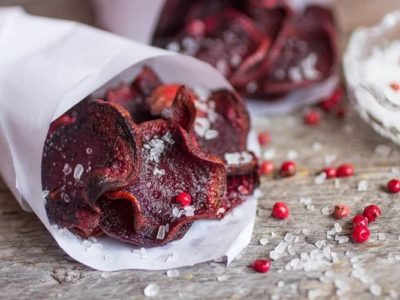Table of Contents[Hide][Show]
Why It’s Difficult to Eat Foods with No Sugar
In recent years, doctors, nutritionists, and dietitians have been pushing for a no-sugar diet plan. The idea of we should “watch our sugar” is nothing new, though.
The fact that we all have our weak moments and fall for those delicious chocolate chip cookies or that Belgian chocolate ice cream you eat for dessert also isn’t new.
What might be new to many of us is the constant stream of sugar sneaking into our diets or meals day in and day out. It’s even in seemingly innocuous forms such as healthy food products boasting “no added sugar.”
You may even find it in something as seemingly healthy as an apple. Fruits, after all, can also contain naturally occurring sugars.
Yes, sugar is everywhere, and it’s basically a dietary supervillain. This is according to JJ Virgin, a certified nutrition and fitness specialist and author of The New York Times bestsellers The Virgin Diet and Sugar Impact Diet.
How Can Sugar and Carbs Impact Health?
Virgin explains why it’s essential to follow a no-sugar diet. She says, “We all know sugar is bad, but the problem is we’ve been looking at sugar all wrong because we tend to look at added sugar, right?”
She mentioned that we don’t look at the natural sugars in food, and we don’t look at carbs. All sugar and all carbs are going to turn into sugar except for fiber.
“Now, all sugar is not created equal. We’ve got all carbs turning into sugar, but then we’ve got this special sugar over here called fructose. I’m glad now it’s starting to come out how evil it is.”
If we could get one thing out there, it’s the fact that fructose is the evilest of the evils. Virgin calls it the Darth Vader of sugar.
It’s because it goes straight to the liver, bypassing satiating signals. Fructose doesn’t raise blood sugar (blood glucose either).
It means it also doesn’t trigger the body’s natural responses that let you know you’ve eaten it. “It can create fatty liver,” says Virgin.
To highlight the impact of a diet that always includes high-fructose corn syrup, she shares, “We have kids with fatty liver. That used to be the disease of alcoholics.”
It can also create insulin resistance. It is a condition wherein the cells don’t respond properly to insulin.
Insulin is a hormone the pancreas makes. It works like a messenger, delivering glucose to cells, which they can use as energy.
When the cells become resistant, it forces the pancreas to produce more insulin. This then leads to high blood sugar levels.
In time, the process can damage the pancreas, which may lead to type 2 diabetes. This disease can result in many complications including chronic kidney disease.
Fructose can also create hypertension (high blood pressure). It goes straight to the liver where it makes fat.
The more fructose you eat, the better your body gets at transporting it straight to the liver and making fat.
Related
Is The Fructose In Fruit Making You Fat And Sick?
Does fruit make you fat and even sick? Read on to find out how fructose levels in fruit can affect your health. What You Need to Know About Fructose in Weight Loss Anyone who’s trying to lose the weight may end up asking, “does fruit make you fat?” Did you know that fructose in fruits …
Sugar Ruins Your Plans to Lose Weight
That’s at the worst end of the sugar spectrum, but all sugar is going to cause problems in your body because of what it feeds.
“Sugar is really coming in and mucking up your hormonal responses and your gut because it’s feeding the bad bacteria in your gut (leading to dysbiosis) and creating Candida,” Virgin says.
Those two things together, feeding Candida and feeding the bad gut bugs, can make you crave more sugar and make you better at storing fat.
Sugar, especially added sugar, is also high in empty calories. It means it can increase your caloric intake, but it doesn’t provide other nutrients such as vitamins and minerals.
For example, if you put five teaspoons of refined sugar (such as granulated sugar) into your coffee, you are already consuming 80 calories.
High levels of sugar can also affect leptin. It is a hormone produced by fat cells and regulates calorie intake and appetite.
Sugar can increase leptin resistance. It will be more difficult to control your hunger and eating habits.
Related
Curbing Junk Food Habits: How to Stop Craving Late Night Sugar and Chips
Discover the 10 best ways to curb your junk food cravings and make healthy, nutritious foods the focus of your diet instead.
Sugary Stuff Disguised as Healthy
The question remains: Where is all this sugar coming from if not simply from our moments of weakness at the cookie jar?
Juices and smoothies have been all the craze for a while among te health-conscious individuals who want to follow a no-sugar diet. In reality, what matters is the amount of sugar you’re consuming.
Do you ever stop and check the sugar content? Do you read food labels of so-called healthy beverages?
Virgin has. Unfortunately, in one popular green drink with “no sugar added,” she found it had 56 grams of sugar.
“[It] is mainly mango and banana and apple with some green in there, so it doesn’t taste too green,” she says. “It looks green but doesn’t taste green.”
The list of foods with hidden sugar is too long to list completely. You can reduce your carb intake by being wary of the following:
- Fat-free fruity vinaigrette
- Salad dressings
- Sauces and condiments
- Sugary cereals
- Fruit juice and diet or zero-calorie soft drinks
- Jams and spreads
- Skim milk
You may also encounter some foods with invert sugar. This type of sugar helps improve the texture of the product, making it smoother.
It’s no better than the added sugars. It is only a fancy name of fructose and glucose.
Many products these days also include net carbs in their nutrition labels. Using them as your sole guide in choosing low-sugar options may not be wise.
It is a controversial subject. Some believe it is an inaccurate picture of how much carbs or sugar are in the food.
Yes, Fruit Turns into Sugar
We’ve all been programmed into thinking eating fruits and veggies makes us healthy. That’s why people include them in their no-added-sugar diet.
While there are certainly loads of benefits from eating fruits and vegetables, the types we eat make a big difference. “Fruit and vegetables are not the same,” Virgin says.
Non-starchy vegetables are not the same as starchy vegetables. Broccoli is not the same as potatoes.
It isn’t to say you should say no to fruits. At the end of the day, fruits still trump other kinds of sweet stuff you crave.
A small piece of orange has 11 grams of net carbs and 9 grams of sugar. One whole-milk plain yogurt, meanwhile, can have as much as 11.4 grams of sugar with no fiber.
Coconut, which is both a fruit and a nut, is a source of good fat. It contains medium-chain triglycerides (MCT).
MCT also goes straight to the liver, but it works differently than other types of fat since it can increase fat burning.
Instead, Virgin advised eating a lot of non-starchy vegetables. These include super greens like kale and spinach.
She also encouraged getting our daily calories from small amounts of low-sugar-impact starchier carbs like pumpkin. Squash is her personal favorite because it’s very low in sugar and high in fiber.
“As far as fruit goes, what you really want to look at is how much fructose is in that fruit,” she says. It turns out apples and pears are the highest fructose-containing fruits.
Apple juice has more fructose than Coke and other types of soft drinks and sugary drinks.
When you want to eat fruits, choose fresh fruit only. Dried ones are just sugar or candy.
For your no-sugar diet, don’t drink fruit juice, including concentrates. It is just fruit unwrapped without the fiber.
Some good low-fructose fruits are cranberries, raspberries, blueberries, and pink grapefruit. They make healthier options for your no-sugar desserts.
Related
A Sweet Countdown – Sweeteners And Sugar Alternatives Ranked From Best To Worst!
What are the best (and worst) sugar alternatives out there? We break down what to eat to satisfy your sweet tooth while staying healthy.
What About Sugar Alternatives?
When it comes to natural sweeteners, she has a stern warning. “The answer is definitely not aspartame since it’s not the artificial as we know,” Virgin says.
It can feed bad bacteria in the gut. Aspartame can raise insulin just like regular sugar can as well.
It makes your sugar cravings more intense. This sugar can be neurotoxic and promote calorie dysregulation, so it’s not the answer.
When you eat sweets but you don’t get the calories you should, your body goes, “What the hell?” You tend to start overeating.
Virgin does see benefits in the following:
- Chicory
- Cinnamon
- Vanilla
- Erythritol
- Xylitol
- Stevia
- Monk fruit
She stresses, however, the importance of just trying to live without the ultra-sweet tastes we have acquired through years of sugar programming. We need to reprogram our taste buds to a more natural state.
“You need to start reclaiming your taste buds, appreciating savory and spicy, using sour foods because sour foods take your sweet tooth away,” she says.
Other tips to help you with your sugar-free diet include:
- Incorporating nuts and seeds (e.g., chia seeds) high in fat and protein, which can make you feel full longer
- Adding mushrooms and lean meats into your dinner recipes
- Opting for whole grains (e.g., whole-wheat bread)
- Choosing water instead of other beverages including fruit juices
- Increasing intake of fiber and fermented foods
How About the Keto Diet?
In an effort to follow a no-sugar diet, some people follow the ketogenic diet plan. Also known as keto, it promotes a low-carb diet with moderate protein intake and high amounts of fat consumption.
The concept is simple: push the body to enter into a state of ketosis. It is a condition wherein the body starts using fat instead of glucose as its source of energy.
Some studies suggest the ketogenic diet may be effective as a short-term weight loss strategy. It may be especially helpful for those with insulin resistance.
It may not be the best diet for those with other health conditions such as hypothyroidism though. You are also less likely to succeed in it because it’s a highly restrictive diet.
Expert JJ Virgin explains how sugar wreaks havoc in the body in this video:
Here’s the truth: it’s difficult to follow a no-sugar diet with absolutely no trace of the substance in your meals. You can, however, make better choices.
This way, you can keep your diet plan as close to zero sugar as possible. It’s really just all about making the effort to be more cautious about what you eat.
You May Also Like…
Editor’s Note: This post was originally published on February 5, 2015, and has been updated for quality and relevancy.







